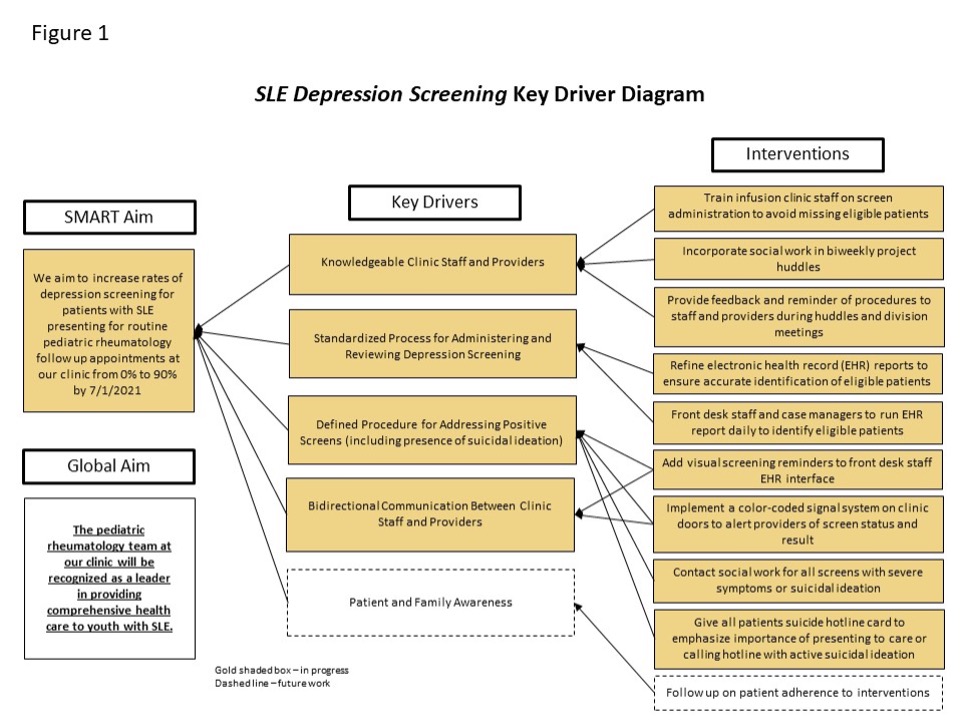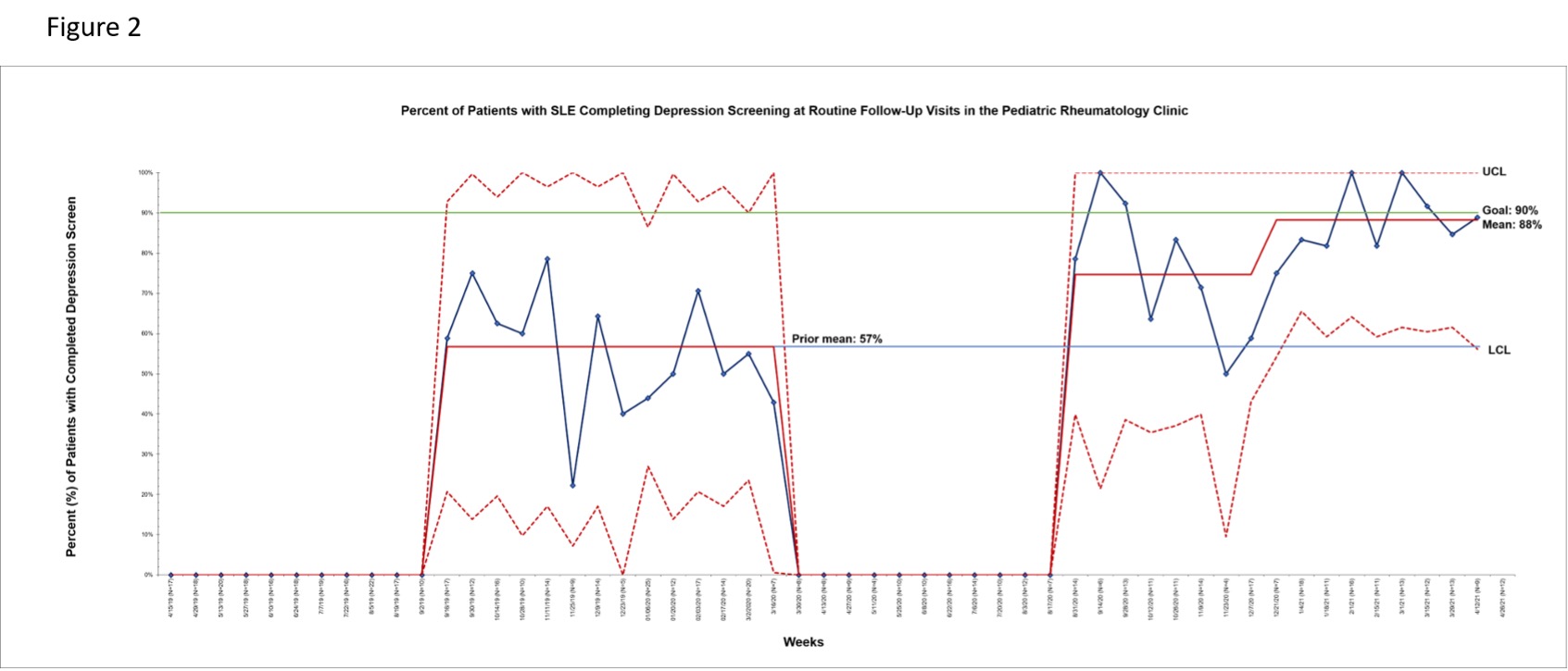Session Information
Date: Sunday, November 7, 2021
Title: Measures & Measurement of Healthcare Quality Poster (0623–0659)
Session Type: Poster Session B
Session Time: 8:30AM-10:30AM
Background/Purpose: Depression is common and adversely affects health outcomes in adolescents and young adults with childhood-onset systemic lupus erythematous (cSLE).1,2 The aim of our quality improvement project was to increase rates of standardized depression screening for adolescents and young adults with cSLE in our pediatric rheumatology clinic.
Methods: This was a second phase of an existing project that was halted March 2020 due to the SARS-COV2 pandemic. All patients with cSLE aged 12 years and older who were seen for routine follow-up in our pediatric rheumatology clinic August 31, 2020 through May 7, 2021 were included. Eligible patients were identified prior to their visit by an Electronic Health Record (EHR) generated report using ICD-10 codes for SLE. The Patient Health Questionnaire-9 modified for adolescents (PHQ-A) was used to screen for depressive symptoms. Patients completed the PHQ-A via an electronic tablet to maintain confidentiality. A designated clinic nurse immediately scored it and uploaded to the EHR for provider review. A multidisciplinary team developed a key driver diagram to organize potential interventions to improve rates of screening (Figure 1). Plan-Do-Study-Act (PDSA) cycles were used to prepare, implement, and evaluate these interventions. Statistical process control methods were used for data analysis.
Results: The percentage of eligible patient encounters where depression screening was completed increased from 57% to 88% following process improvements generated through PDSA cycles. This increase in completed screening represents special cause variation as evidenced by two separate data shifts on the control chart (Figure 2). Notable interventions included implementing a color-coded signal system to alert providers of screen status, adding screen reminders to front desk staff EHR interface, incorporating social work in biweekly huddles, and refining EHR reports to ensure accurate identification of eligible patients. Of the 176 depression screens completed, 33 (19%) were positive for moderate to severe symptoms and 16 (9%) were positive for suicidal ideation (SI). Clinic staff intervened on all screens that were positive for SI. Interventions for SI included social work consult, home safety planning, and referral to a behavioral health provider (or ensuring close follow up with an established behavioral health provider).
Conclusion: Rates of depression screening for adolescents and young adults with cSLE increased with process improvements made to our PHQ-A screening system. Future work will focus on improving rates further via full integration into the EHR.
References:
1. Knight A, Weiss P, Morales K, et al. Depression and anxiety and their association with healthcare utilization in pediatric lupus and mixed connective tissue disease patients: a cross-sectional study. Pediatr Rheumatol Online J. 2014;12:42. doi:10.1186/1546-0096-12-42
2. Chang JC, Davis AM, Klein-Gitelman MS, Cidav Z, Mandell DS, Knight AM. Impact of Psychiatric Diagnosis and Treatment on Medication Adherence in Youth With Systemic Lupus Erythematosus. Arthritis Care Res. 2021;73(1):30-38. doi:10.1002/acr.24450
To cite this abstract in AMA style:
Datyner E, Mitchell M, Fine B, Patterson B, Graham T, Davis A. Increasing Rates of Standardized Depression Screening in Adolescents and Young Adults with Childhood-Onset Systemic Lupus Erythematosus in a Pediatric Rheumatology Clinic [abstract]. Arthritis Rheumatol. 2021; 73 (suppl 9). https://acrabstracts.org/abstract/increasing-rates-of-standardized-depression-screening-in-adolescents-and-young-adults-with-childhood-onset-systemic-lupus-erythematosus-in-a-pediatric-rheumatology-clinic/. Accessed .« Back to ACR Convergence 2021
ACR Meeting Abstracts - https://acrabstracts.org/abstract/increasing-rates-of-standardized-depression-screening-in-adolescents-and-young-adults-with-childhood-onset-systemic-lupus-erythematosus-in-a-pediatric-rheumatology-clinic/


